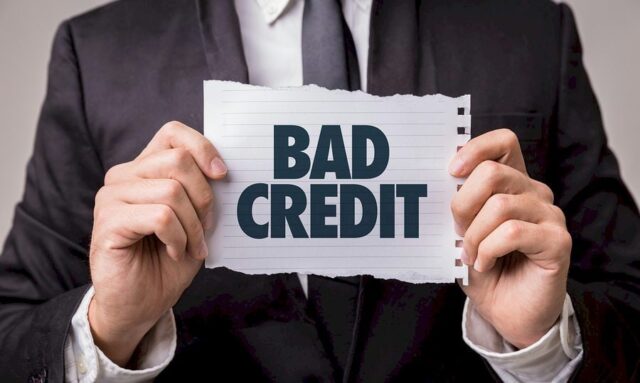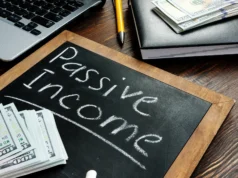
If you have bad credit, you may wonder if getting a home equity loan is possible. The good news is that it is possible but may require some additional effort. The first step is to check out the different solutions available. Also, be sure to choose a company that is well-known and reliable, such as Homebase Mortgages. In this article, we will discuss more about taking a loan while having a bad rating.
Know Your Credit Score and History

Before applying, you must know your credit score and history. Therefore, request for a list of financial details related to your activities, where you can also check the rating. Review your report for errors and take steps to correct them. Knowing your credit score and history can help you understand what lenders may see when they review your application.
One way to improve your credit score is to pay down high balances on credit cards or other loans. However, this can lower your credit utilization rate, the percentage of available credit you use. Lenders prefer to see a utilization rate of 30% or less. You can also improve your rating by making all your payments on time and keeping your accounts open, even if you don’t use them.
Consider a Co-Signer

A co-signer agrees to be responsible for the money you got if you cannot make payments. If you have a family member or friend with good credit willing to co-sign for you, it can increase your chances of getting approved for a home equity funds. However, remember that if you default on the loan, the co-signer will make the payments.
Before asking someone to co-sign for you, make sure they understand the risks and responsibilities involved. They should also be aware that this option can impact their credit score and borrowing capacity.
Explore Government-Backed Loan Options
Several government-backed loan options may be available to homeowners with bad credit. For example, the Federal Housing Administration offers home equity loans with lower credit score requirements than traditional lenders. The U.S. Department of Veterans offers home equity loans to eligible veterans and active-duty service members.
Keep in mind that government-backed options may have higher fees or interest rates than traditional options. However, they can be a good option for borrowers who have been turned down by traditional lenders.
Offer Additional Collateral

If you have a poor financial score, offering additional collateral can increase your chances of getting approved. That can include assets such as a car, boat, or other property. However, remember that offering additional collateral increases your risk if you cannot make your payments.
Before offering additional collateral, make sure you understand the risks involved. You should also make sure that the collateral you offer has enough value to make a significant difference to the lender.
Look for the Best Loan Terms
When looking for this type of loan while having a bad rating, shopping around and comparing the terms from multiple lenders is important. That can help you find the best conditions and interest rates available to you. Make sure to compare the interest rates, fees, and other costs associated with each offer.
You can apply for multiple options within a short period of time without it negatively affecting your credit score. That is because financial institutions understand that when you are shopping for funds, you may need to apply with multiple lenders to find the best offer. Just make sure to keep track of your applications, and any offers you receive.
Should You Get a Loan With Bad Credit?

When you have bad credit, getting additional funds can be difficult. But when it comes to a home equity loan, it is important to weigh the risks and benefits before deciding if it’s the right choice for you. You may be charged a higher interest rate, which can increase your monthly payments and the total amount you’ll have to pay back. Besides, if you are unable to make your payments, you could risk losing your home.
Despite the risks, there are some benefits to making this choice, even though you have a poor rating. If you use the funds to make home improvements or pay off high-interest debt, it could improve your score over time. Also, the interest you pay on a home equity loan may be tax-deductible, which can help lower your overall tax bill.
There are some alternatives available as well. You may be able to get a personal loan, which may have higher interest rates but does not require collateral. You could also consider a credit card with a 0% introductory APR for balance transfers to consolidate high-interest debt.
If you decide that a home equity loan is a right choice for you, there are steps you can take to improve your chances of approval. These include paying down debt, improving your credit score, and shopping around for the best loan terms.
Moreover, it is crucial to evaluate your ability to make monthly payments. Make sure to factor in any changes in your income or expenses that could affect your ability to make payments. If you are not sure, it may be best to wait until your financial situation improves.
Finally, it is important to use the loan wisely. It is crucial to have a clear plan that you will follow. Avoid using the loan for discretionary expenses or things that won’t improve your financial situation in the long run.
Last Words

The most important thing is that there is still a way to get funds even when you have a bad rating. However, you have to keep in mind that terms might not be as good as for those with a much higher score.
Still, if you need additional funds, and this is the only way to get them, accepting those more demanding terms can be a good solution. Also, we have to add that it can be a great option for improving your score over time. However, it is crucial to pay it back on time, and never to be late with monthly installments.









